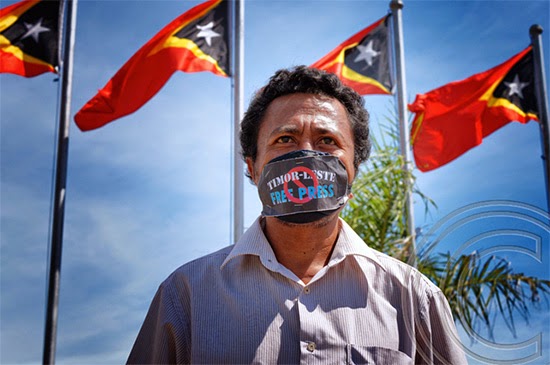
LONDON (Amnesty International / Pacific Media Watch): Amnesty International says it is concerned that the Timor-Leste Parliament may push ahead with ratifying the new Media Law, even though Timor-Leste's Court of Appeal found certain provisions to be unconstitutional.
In a statement released today, Amnesty International said the Timor-Leste parliament and the country's president, Taur Matan Ruak, must ensure that the law is revised to bring it in line with international human rights law on freedom of expression, and in particular to ensure that it will not restrict the legitimate work of journalists and the right of everyone in Timor-Leste to exercise the right to freedom of expression, including the right to receive information.
"The organisation is concerned that Parliament may push ahead with ratifying the law, which could stifle freedom of expression in the country. Many local activists in Timor-Leste believe the law was enacted to impede local and foreign journalists from reporting on alleged corruption, nepotism and financial mismanagement in Timor-Leste."
On August 21 the Court of Appeal ruled that certain provisions in the law were in breach of the Constitution. These provisions included those specifying the "duties" of the media (Article 20), foreign ownership (Article 24) and fines for journalists violating the law (Article 40). The law was returned to the Parliament to be revised.
Amnesty International said the Media Law was incompatible with Timor-Leste’s human rights obligations, particularly the International Covenant on Civil and Political Rights (ICCPR) which Timor-Leste ratified in 2003. Article 19 of the ICCPR guarantees the right to freedom of expression which includes freedom to seek, receive and impart information and ideas of all kinds through any media.
The media law would restrict imparting information to registered journalists, who would need to be over 18 years of age and working for a recognised media outlet. This would prevent bloggers, analysts, civil society activists and others from being involved in writing and disseminating information.
"The Human Rights Committee – the expert body that oversees the implementation of the ICCPR – has stated that 'journalism is a function shared by a wide range of actors, including professional full-time reporters and analysts, as well as bloggers and others who engage in forms of self-publication in print, on the internet or elsewhere'. It has in particular stated that general state systems of registration or licensing of journalists are incompatible with such restrictions on the exercise of the right to freedom of expression as are consistent with international human rights law, which permits only such restrictions as are demonstrably necessary and proportionate for respect of the rights of others or for protection of national security or public order, or public health or morals."
Mounting global pressure against Timor-Leste’s ‘death sentence’ media law
IFJ launches petition protest against draconian ‘press law’
This work is licensed under a Creative Commons Attribution-NonCommercial 3.0 New Zealand Licence.




